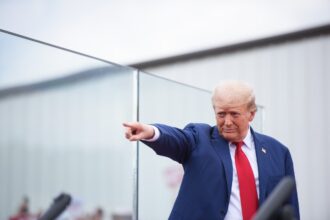President Joe Biden has officially removed Cuba from the U.S. list of state sponsors of terrorism (SST), reversing a controversial decision made during the final days of the Trump administration. The move is part of a broader effort to recalibrate U.S.-Cuba relations and foster political reforms in the communist nation.
The White House announced the decision on Tuesday, citing improved assurances from Cuba regarding its future conduct. “The United States remains committed to advancing freedom, democracy, and human rights in Cuba,” President Biden stated. He also noted that the removal aligns with U.S. objectives of engaging more constructively with the Cuban government and people.
Background on the Designation
Cuba was added to the terrorism list in January 2021 by then-President Donald Trump, who cited its support for Venezuelan President Nicolas Maduro, its alleged harboring of Colombian rebels, and its refusal to extradite U.S. fugitives. The designation, which imposed stringent economic and diplomatic restrictions, was widely criticized by international human rights organizations and some U.S. lawmakers.
The Biden administration determined that there was “no credible evidence” of Cuba actively supporting terrorism, a key requirement for remaining on the list. A senior U.S. official explained that Cuba had provided guarantees it would not support acts of terrorism in the future. The administration also underscored that the removal does not preclude the U.S. from imposing other sanctions on Cuba for human rights abuses or its political policies.
Policy Shifts and Regional Implications
In addition to removing Cuba from the SST list, Biden has rescinded the 2017 National Security Presidential Memorandum 5 (NSPM-5) issued under Trump. This directive had imposed further restrictions on U.S. engagement with Cuban entities. Its revocation aims to facilitate greater economic and diplomatic interaction between the two nations.
White House Press Secretary Karine Jean-Pierre highlighted the broader context of the policy shift: “The administration is committed to a practical and constructive engagement with Cuba, balancing accountability with opportunities for collaboration.”
Political Reactions
The decision has drawn sharp criticism from Republican lawmakers. Senator Ted Cruz condemned the move as “unacceptable,” arguing that Cuba continues to support destabilizing activities in the region. “The terrorism advanced by the Cuban regime has not ceased,” Cruz said in a statement. “We must remain firm in our efforts to hold the regime accountable.”
Other critics, including Florida Senator Marco Rubio, have expressed skepticism about Cuba’s assurances and the potential long-term consequences of easing restrictions. Rubio, whose family fled Cuba during the pre-Castro era, has long been a staunch advocate for sanctions on the communist island.
Meanwhile, advocates of closer ties with Cuba have welcomed the decision as a necessary step toward fostering economic growth and political reform on the island.










